What A Wonderful World chords
by Louis ArmstrongSong Key: F Major
Time Signature: 4/4
Tempo: 72 bpm (♩.)
Guitar Tuning: E A D G B e
Skill Level: Intermediate
Guitar Chords: F, Am, B♭, Gm7, A7, Dm, C11, F#dim7, Am7b5, C7b9, B♭6, Faug, D♭, C7, C/E, C/G, Dm/F, B♭maj7
Extra: See below for Helpful Tips
Play-Along Video & Chord Charts

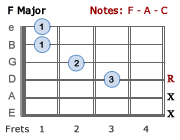
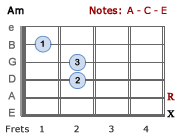
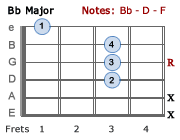

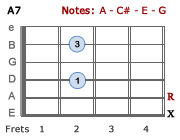
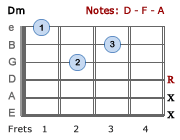







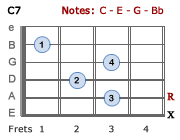





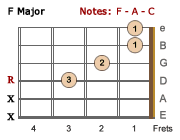
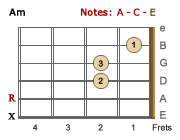
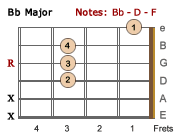

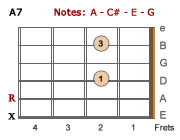
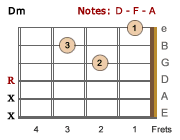







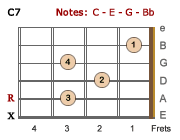




What A Wonderful World
Song Key is highlighted - Transpose to any other key
F Bb F Bb
Intro: 4/4 ‖ - | - ‖
F Am Bb Am
1. I see trees of green Red ro-ses too
Gm7 F A7 Dm
I see them bloom For me and you
Db
And I think to my-self
C11 C7 F Faug Bbmaj7 C7
What a won-der-ful | world - | - |
F Am Bb Am
2. I see skies of blue And clouds of white
Gm7 F A7 Dm
The bright bles-sed day The dark sa-cred night
Db
And I think to my-self
C11 C7 F Bb Bb F
What a won-der-ful | world - | - |
C7 F
Bridge: The co-lors of the rain-bow So pret-ty in the sky
C7 F
Are al-so on the fa-ces Of peo-ple go-in' by
Dm C/E Dm/F C/G
I see friends sha-king hands Sayin', "How do you do?"
Dm/F F#dim7 Gm7 F#dim7 C7
They're real-ly say-ing I love you
F Am Bb Am
3. I hear ba-bies cry I watch them grow
Gm7 F A7 Dm
They'll learn much more Than I'll e-ver know
Db
And I think to my-self
C11 C7 F Am7b5 D7
What a won-der-ful | world - | |
Gm7
Yes I think to my-self
C7b9 F Bb6 F
What a won-der-ful world | - | Oh Yeah |...
𝄑Please Note: If you use the Transposer and return back to the Original Key of F, you will find F#dim7 replaced with Gbdim7. They are actually the same chord (enharmonic equivalents). If you prefer to see F#dim7, simply refresh the page.
Helpful Tips:
- Level Of Difficulty: Fairly Hard. This song includes a vast array of chords, some simple and some may be foreign to many of you. However, once you learn these chords, you will find they are not so hard, and in some cases fairly easy. You will love the sound of many of these chords. The arrangement is beautiful, and it is no wonder that many guitarists turn to jazz after playing songs like this.
- Song Key: F Major - 1 flat (B♭)
Triplets:
This song is played slowly with the guitar picking in triplet time.
A triplet means three evenly spaced notes played in 1 beat.
The time signature is 4:4 time therefore the count in each bar is | 1 2 3 4 | or | 1& 2& 3& 4& | where 1 beat in this case is 1&, etc.
Because the guitar is playing in triplet time, the count per bar is | 1&& 2&& 3&& 4&& |.
Listen closely, and take note of the guitar finger-picking.
- Chord charts have been included for players wanting to play open chords in the first position with the exception of B♭maj7, C11, C7-9, and Gm7. All chord positions are located on the first 3 frets so you don't have to go very far when moving from one chord to the next.
- Remember that these chords can be played in several positions, so if you like being a 'kamikaze' player, you can play these chords wherever you like.
- If you have trouble with any other chords, go to the 'guitar chords' page and choose any chord type you need to learn or revise.
- This is a great song for jazz guitarists with some nice open chords which jazzists will really appreciate. You can play barre chords, but the open chords sound very nice, especially if you are finger-picking.
- Wherever you see 2 chords with a hyphen between them, it means the beat count is shared equally, so in this case where the time signature is 4/4, the first chord is played for 2 beats and the second chord is played for 2 beats, e.g., | F - B♭ | means 2 beats on F and 2 beats on B♭.
- b5, b9 and aug chords can also be written as -5, -9, and + chords:
- Am7-5 = Am7b5
- C7-9 = C7b9
- F+ = Faug
- Wherever you see chords like C/E, C/G, or Dm/F, the chord is played with the leading bass note after the back-slash, i.e.,
- Dm/F is a Dm chord leading with a bass note of F
- C/G is a C chord with a leading bass note of G
- C/E is a C chord with a leading bass note of E
- This last example could also be played as 032010 which is a normal C chord that includes the E-bass note on the 6th string instead of omitting it. However, it doesn't quite sound right after the Dm, hence the use of xx2010 where the leading bass note is on the 4th string, omitting strings 5 & 6 altogether.
Song Details:
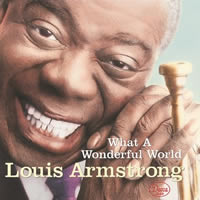
- Songwriters: Bob Thiele, George David Weiss.
- Lyrics Begin: I see trees of green, red roses too, I see them bloom for me and you,
- Performing Artist: Louis Armstrong
- Single:
Recorded: August 16, 1967 (New York)
Released: September 1967
B-side: Cabaret - Genre: Pop, R&B
- Album: What a Wonderful World
Released: 1968
